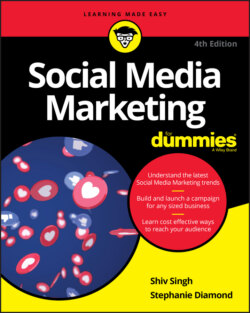Читать книгу Social Media Marketing For Dummies - Shiv Singh - Страница 63
SMM in the context of direct-response marketing
ОглавлениеDirect-response marketing is designed to solicit a specific, measurable response from specific individuals. Unlike brand marketing, with direct response, for every dollar invested, you see a traceable return. The measurable relationship is established between you and the consumer.
Some of the core attributes around direct response include a call to action (which is when the brand asks the customer to do something like call a number or click a link), an offer and delivery of enough information to elicit a response, and guidance on how to respond. Television infomercials, which encourage consumers to call a number or visit a website, and direct mail offers, which invite consumers to purchase a product or send a reply, are the most common forms of direct-response marketing. Online advertising campaigns that are designed to drive clicks and purchases on brand websites are the most common online equivalent.
SMM complements direct response but historically has lacked some of the measurability found in direct response. Social media marketing isn’t typically geared toward a specific individual with the goal of soliciting a specific, measurable response. With SMM, communities of consumers are targeted with the goal of enticing them to positively influence one another and other people within their networks of online relationships. The goals are to convert consumers into potential marketers for the brand and provide them with the tools and mechanisms to further influence others. While it’s different from asking an isolated consumer to perform a specific task, increasingly the social media platforms are developing extremely powerful advertising formats that enable you to use their platforms for all your direct-response marketing needs.
More broadly speaking, SMM isn’t as measurable as direct-response marketing is, although that is changing fast. Tracking how social influencers work is difficult; when a consumer shows brand affinity or makes a purchasing decision, it’s hard to tell which factors or influencers impacted those choices most directly. In that sense, SMM is more akin to brand marketing, where the measurability is weak and needs to be based on feedback similar to that collected in attitudinal surveys. It’s easy to track expert influencers online using social media measurement tools, but that’s just part of the equation. Often, the social influencers who sway purchasing decisions aren’t the most public and noticeable brand advocates.
Another factor to consider with SMM is that the call to action can’t be too heavy-handed. As a result, some would argue that SMM is much more about social influence and much less about marketing. Social campaigns that blatantly push the call to action generally fail because they lack credibility, don’t provide value to the consumer and appear calculated. For this reason, you can’t always easily recognize or measure your successful SMM campaigns.
